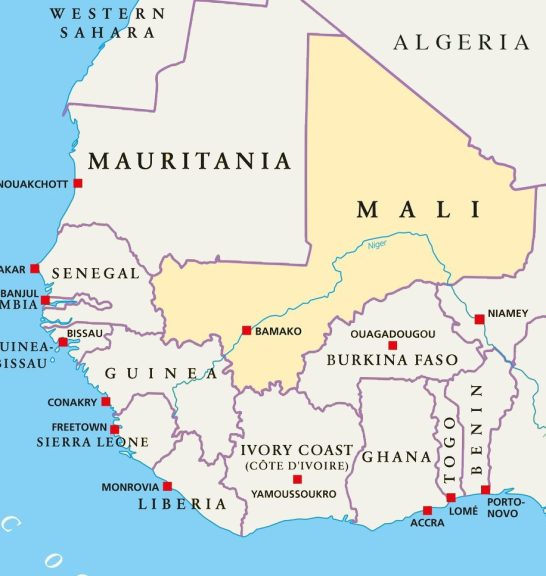Russia and Mali have signed an agreement of cooperation concerning the use of nuclear energy, following the visit of Mali’s transitional president, Assimi Goita, to Russia. Russian Prime Minister Mikhail Mishustin had previously ordered the signing of agreements between the Russian government and the governments of Mali and Burkina Faso on cooperation in the peaceful use of nuclear energy. The corresponding agreement with Burkina Faso was signed last week.
According to these agreements, Russia intends to cooperate with Mali and Burkina Faso in creating and improving nuclear energy infrastructure and designing and constructing power and research nuclear reactors and particle accelerators, as well as water desalination plants. Other areas of cooperation include nuclear fuel cycle services for nuclear power plants and research reactors, radioactive waste management, and nuclear and radiation safety.

In 2023, Rosatom announced the signing of a memorandum of understanding with Mali on cooperation in the peaceful use of nuclear energy. The parties also discussed prospects for collaboration between the two countries in geological exploration and mining and in the peaceful use of nuclear energy. Mali’s Minister of Economy and Finance Alousseni Sanou reported at last year’s Russian Energy Week that Mali planned to begin lithium mining and processing with Russia.
Rosatom Renewable Energy (until 2024—NovaWind)—Rosatom’s wind energy division—is also working with the government of Mali in the construction of a 200-megawatt (MW) solar power plant near the capital, Bamako. Last year, the company’s CEO, Grigory Nazarov, said that the construction of the power plant is expected to increase electricity production in Mali by 10%. He was quoted as saying, “The construction, which will cost €200 million (US$217 million), will take a year. The solar power plant is designed to operate steadily for 20 years and will come under the full control of Mali’s Ministry of Energy in 10 years.”
Further Reading
Continue Reading





 Русский
Русский










